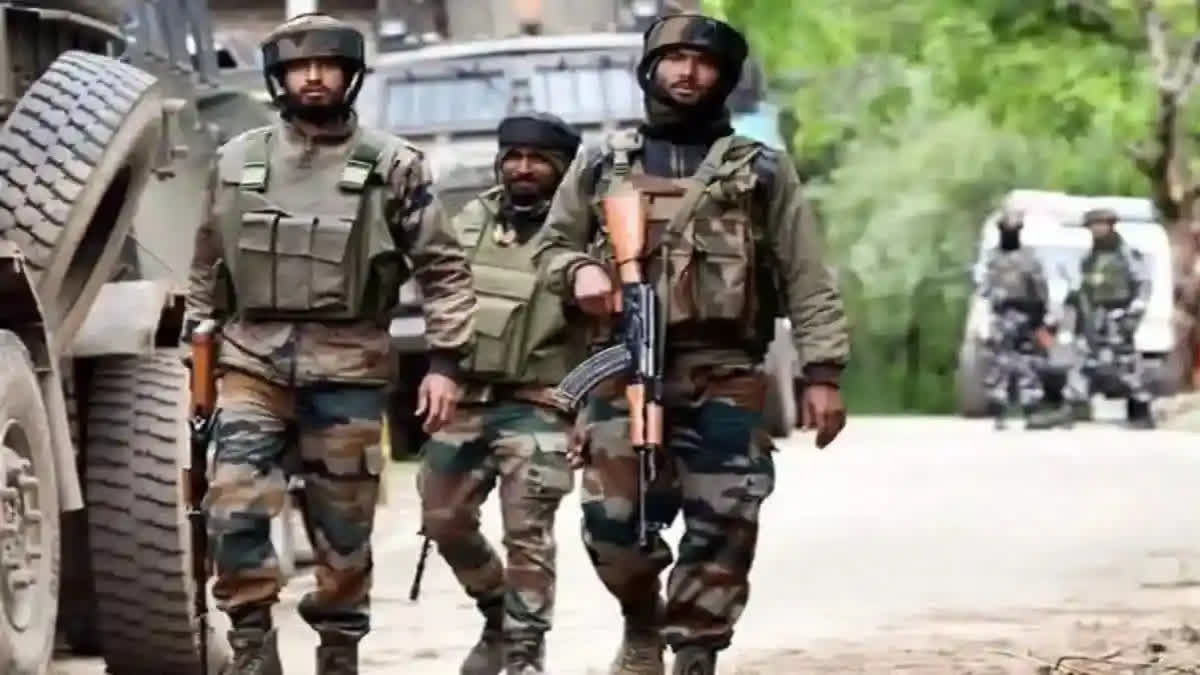New Delhi: Admitting that India faces a major security challenge due to radical and extremist thoughts influencing the people, especially the youth, a Parliamentary Committee has asked the Central government to take initiatives for a global counterterrorism movement focusing on the abuse of new and emerging technologies like social media platforms, encrypted messaging services, cryptocurrencies, unmanned aerial vehicles and drones for preventing and neutralising terrorist threats and activities.
The Committee on External Affairs in the 28th report presented in the Lok Sabha last week noted that despite efforts by the international community, including those led by the UN Security Council, terrorism continues to remain the gravest threat to humanity.
“The threat of terrorism is also expanding at a rapid pace into new areas, particularly in Asia and Africa. Aerial terrorism is gradually emerging as a potent form of terrorism while the share of digital mode of terror financing also increasing,” the committee chaired by PP Chaudhary pointed out.
The committee, however, noted that there is no universally accepted definition of terrorism or global terrorist or terrorist activities. India had proposed the adoption of the Comprehensive Convention on International Terrorism (CCIT) to the UN General Assembly in 1996, but a consensus has not been achieved so far due to the position taken by some member countries on qualifying the definition of terrorism.
The committee, therefore, urged the ministry to step up its diplomatic efforts at multilateral, regional and bilateral levels stressing the need for the international community to reach an agreement on the draft text of the Comprehensive Convention on International Terrorism at the earliest.
The committee noted that Global Terrorist Groups (GTGs) such as ISIS and Al Qaida are highly dependent on encrypted messaging platforms for instructions and preparations for terror attacks, the revival of their sleeper cells and have heavily made use of crowdfunding and virtual currencies like bitcoins for terror financing.
In addition to instigating lone wolf attacks, GTGs also radicalise youth through misinformation and false narratives via extensive use of social media platforms. “Despite counter-terrorism efforts across the globe, GTGs remain a major challenge for global peace and security,” the committee observed.
Given the threat to the global community and humanity at large, the committee asked for collective global efforts against GTGs should be strengthened and intensified through active coordination and effective implementation of the various UN resolutions and strict adherence to FATF norms for restricting the source of their financing.
The committee also urged the government to initiate vigorous campaigns for collective action against these terrorist groups to prevent them from building capabilities to carry out terrorist attacks and disturbing global peace and security. The committee noted that with the emergence of new technology and the rise in the usage of the internet, an increase in cyber incidents is a global phenomenon.
However, there is a lack of global regulations on the use of cyberspace for terrorism and terrorist-related activities. Though India proposed to include terrorism as a separate crime under the ongoing process of the United Nations Ad Hoc Committee towards having a comprehensive international convention to counter the use of ICTs for criminal purposes, there was no significant support from Member States to include ‘cyber terrorism’ as a separate crime.
“A multifaceted approach involving the active participation of stakeholders, including global cyber security and law enforcement organisations at regional and international levels, is imperative to counter global cyber terrorism,” it said.
The committee stressed the need for the government to make persistent efforts at the UN Ad Hoc Committee and work towards deeper cooperation amongst UN member countries so that a comprehensive international convention to counter the use of ICTs for criminal purposes is evolved at the earliest.
The committee in its report urged the government to take initiatives for promoting regional and international cooperation in developing joint strategies, cyber threat intelligence sharing mechanisms, cross-border initiatives and capacity building to combat cyber terrorism.
Read more: Work Out Mechanism To Root Out Terrorist Networks From Pakistan: Parliamentary Panel



